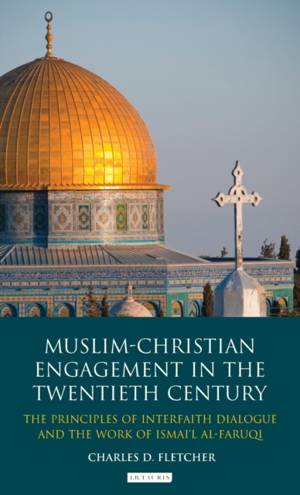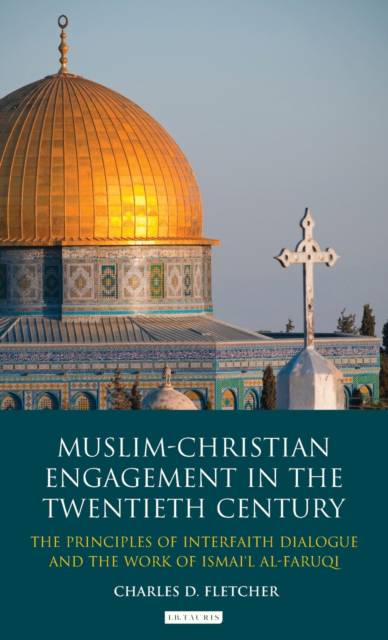
Bedankt voor het vertrouwen het afgelopen jaar! Om jou te bedanken bieden we GRATIS verzending (in België) aan op alles gedurende de hele maand januari.
- Afhalen na 1 uur in een winkel met voorraad
- In januari gratis thuislevering in België
- Ruim aanbod met 7 miljoen producten
Bedankt voor het vertrouwen het afgelopen jaar! Om jou te bedanken bieden we GRATIS verzending (in België) aan op alles gedurende de hele maand januari.
- Afhalen na 1 uur in een winkel met voorraad
- In januari gratis thuislevering in België
- Ruim aanbod met 7 miljoen producten
Zoeken
Muslim-Christian Engagement in the Twentieth Century
The Principles of Inter-faith Dialogue and the Work of Ismail Al-Faruq
Charles Fletcher
€ 296,95
+ 593 punten
Omschrijving
Christian-Muslim dialogue grows increasingly important, but little is known about individual Muslim dialogical thinkers. Born in Palestine in 1921, Ismail al-Faruqi was a leading figure in the development of conversation and debate across faiths in North America in the second half of the twentieth century, and was actively engaged in inter-faith study and dialogue. Al-Faruqi founded the Islamic Studies programme at Temple University, Pennsylvania where several distinguished Muslim intellectuals have taught, such as Seyyid Hossein Nasr, Mahmoud Ayoub and Hasan Hanafi. Along with Kenneth Cragg and Wilfred Cantwell Smith, al-Faruqi was an active participant in Muslim-Christian dialogues in the 1970s and the 1980s. Charles Fletcher here presents the first study dedicated to Ismail al-Faruqi's theory and practice of interfaith dialogue. Analysing al-Faruqi's sometimes provocative ideas on the comparative study of religion, dialogue and practical engagement, the author provides an illuminating study of the life and thought of this important scholar.
Tracing the development of al-Faruqi's ideas and practice of inter-faith dialogue, Fletcher shows how Muslim intellectuals engaged in such attempts viewed their role as representatives of the worldwide Muslim community. With perceptive insights into the history of contemporary Muslim-Christian dialogue, this book will be invaluable for all those interested in inter-faith relations, comparative religious studies, North American Muslims and Islamic studies.
Tracing the development of al-Faruqi's ideas and practice of inter-faith dialogue, Fletcher shows how Muslim intellectuals engaged in such attempts viewed their role as representatives of the worldwide Muslim community. With perceptive insights into the history of contemporary Muslim-Christian dialogue, this book will be invaluable for all those interested in inter-faith relations, comparative religious studies, North American Muslims and Islamic studies.
Specificaties
Betrokkenen
- Auteur(s):
- Uitgeverij:
Inhoud
- Aantal bladzijden:
- 352
- Taal:
- Engels
- Reeks:
Eigenschappen
- Productcode (EAN):
- 9781848855090
- Verschijningsdatum:
- 21/10/2014
- Uitvoering:
- Hardcover
- Formaat:
- Genaaid
- Afmetingen:
- 140 mm x 216 mm
- Gewicht:
- 539 g

Alleen bij Standaard Boekhandel
+ 593 punten op je klantenkaart van Standaard Boekhandel
Beoordelingen
We publiceren alleen reviews die voldoen aan de voorwaarden voor reviews. Bekijk onze voorwaarden voor reviews.









